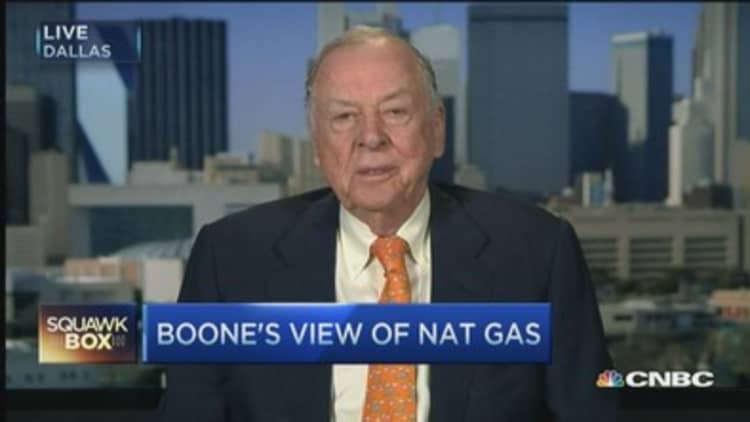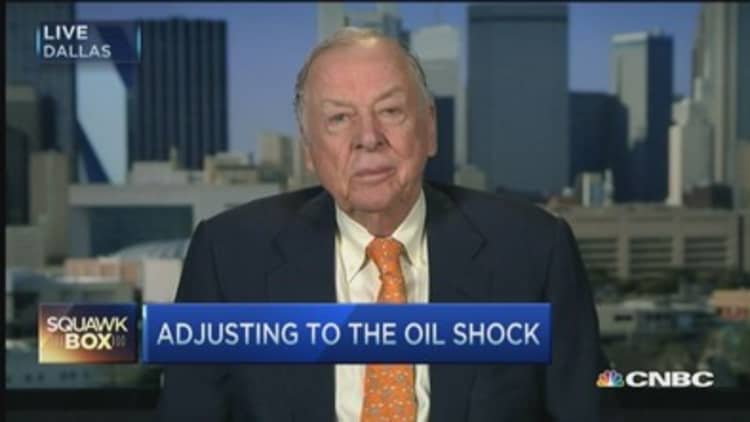


Oil prices fell on Thursday as a rebounding dollar and Kuwait's stance that OPEC had no choice but to keep producing in an oversupplied market undercut a rally from the previous day.
U.S. crude for April delivery closed down 70 cents, or 1.57 percent, at $43.96 a barrel. It touched a session low of $42.75 earlier.
Brent for May delivery fell to a fresh session low below $54 on Thursday afternoon, before recovering to trade down $1.50 at $54.46 a barrel. Brent rose almost 4.5 percent on Wednesday.
Benchmark Brent oil and U.S. crude were down about 2 percent each, weighed by the dollar's rise against most currencies after the greenback's biggest tumble in 18 months on Wednesday.
In the previous session, Brent rose nearly 5 percent and U.S. crude about 3 percent on the dollar weakness.
Read MoreOPEC oil minister:We 'have no choice' on output
"It's dollar play all over again today," said Phil Flynn, analyst at the Price Futures Group in Chicago. "The fact that the oil market is oversupplied is a given, so the only real variable now are currency moves and how they impact commodities demand."
A stronger dollar weakens demand from holders of other currencies for commodities denominated in the greenback. The dollar rose 2 percent against the euro on Thursday, after its selloff on Wednesday on disappointment over the lack of a clear timeline for a U.S. interest rate hike.
Read MoreBoone Pickens: Why I see $70 oil by year's end
In Kuwait, oil minister Ali al-Omair said OPEC had to keep production steady, although he voiced concern about oil prices having been halved since the previous summer.
"We don't want to lose our share in the market," the minister said, reinforcing comments by OPEC kingpin Saudi Arabia of the need for members of the producer group to defend its output against rival shale oil producers in the United States and other non-OPEC nations.
While oil firms have slashed exploration budgets and the number of U.S. rigs drilling for oil has fallen to four-year lows, shale output in the United States has barely slowed.
Last week alone, U.S. crude stockpiles rose by 9.6 million barrels to reach above 458 million barrels, the highest in more than 80 years.
Read MoreIs this our next energy source?
In Lausanne, Switzerland, nuclear talks between Iran and six major powers showed major differences remaining toward a deal, providing some support to oil prices. Iran, an OPEC member whose oil exports have been restrained by sanctions related to its nuclear program, has said it will add another million barrels to the market when the sanctions come off.
On Thursday data showed the number of Americans filing new claims for unemployment benefits rose only modestly last week, indicating the labor market remained on solid footing.

